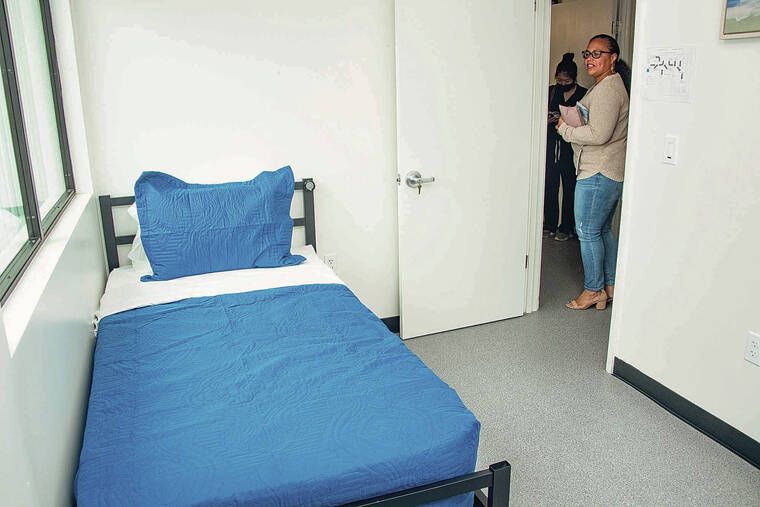A homeless triage center would be established within the Alcohol and Drug Abuse Division of the state Department of Health under a proposal advancing at the state Legislature.
According to House Bill 2309, the triage center would serve homeless people with substance abuse issues or mental illnesses, providing patients with 24/7 access to food and shelter. In addition, information would be available on housing and support services, including case management, medical assessments, behavioral health, life skills groups, substance abuse treatment and detoxification.
DOH submitted written testimony in support of
HB 2309 and encouraged more dialogue with community and service providers to better understand the need for triage and detox services, ensuring optimal care for those in need.
According to Partners in Care’s 2023 Point in Time Count, 4,028 people experienced homelessness on Oahu.
Among the 2,824 people who were surveyed, 31% of them reported a substance use problem, and 39% reported a mental illness.
In June the Institute for Human Services established the ‘Imi Ola Piha Triage and Treatment Center, providing detox treatments and stabilization for clients dealing with addiction.
HB 2309 mentioned the center’s efforts and said that “a successful pilot program can do more to reduce the cost of restoring homeless persons to normalcy and
independence.”
As of Monday, 146 people have been admitted into the ‘Imi Ola Piha Triage and Treatment Center. Of the 143 discharged, 114 people completed their detox and stabilization program, according to Angie Knight, IHS community relations manager.
Ellen Carson, an IHS volunteer, submitted written
testimony in support of
HB 2309, calling a homeless triage center “the best chance for our chronically homeless persons to get the help they need for recovery.”
Carson wrote that the cost for services through triage centers will amount to “much less” than if the homeless people enter the cycle of the law enforcement and health care systems.
“When a homeless person is finally ready to get help for addiction or mental illness, we need these centers to offer immediate beds and assistance, to help break the cycle of continuing homelessness,” Carson said.
The bill said that homeless people with behavioral health issues frequently rely on hospital emergency departments, which include emergency ambulance transportation and mental health evaluations — resulting in “millions of dollars each year” within Hawaii’s health system.
Each year, the average cost of detoxification is $1,536 for outpatients and $58,810 for residential patients.
“Saving 1,602 patients from outpatient rehab visits or diverting them from emergency medical treatment could save the state upwards of $2,460,672 and $5,820,066, respectively,” the Legislature wrote.
The Hawaii Substance Abuse Coalition submitted written testimony in support of the bill but recommends amendments that the Legislature include co-occurring disorder treatments — which would treat both mental illness and substance abuse in one setting — when mentioning behavioral health services.
“Most of the people who need temporary care suffer from homelessness that includes substance abuse, and mental health which is called co-occurring disorder,” Alan Johnson, chair of HSAC, wrote in testimony.
Johnson said having a
triage center program managed by the Alcohol and Drug Abuse Division would be effective in preparing a statewide plan to best utilize their resources for detoxification, psychiatric medication and urgent health care.

